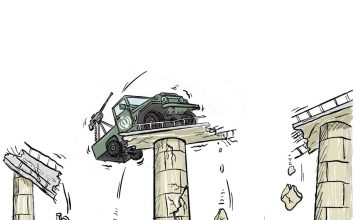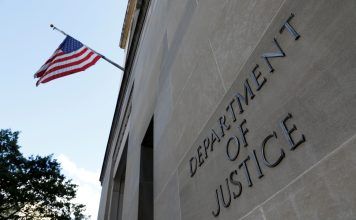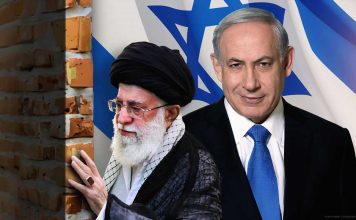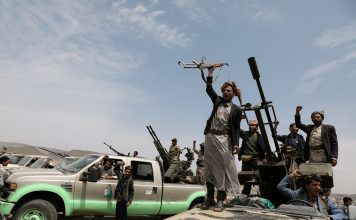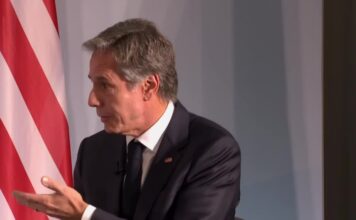By Kayhan Life Staff
In February, Iran’s Supreme Leader Ayatollah Ali Khamenei pardoned or approved reduced sentences for some 88,000 prisoners, including dissidents and others arrested during the recent nationwide protests sparked by the September death of Mahsa (Zhina) Amini while in the custody of the morality police in Tehran.
April 5, 2023. Tehran, Shahr-e Ziba.
People protesting on the occasion of Hamidreza Rouhi's birthday.
“Illegitimate Seyed Ali [Khamenei]
The uprising won't be over.”pic.twitter.com/rrqdgfmZqi— 1500tasvir_en (@1500tasvir_en) April 5, 2023
April 5, 2023. Tehran, Shahr-e Ziba.
People protesting on the occasion of Hamidreza Rouhi's birthday.
“Freedom Freedom Freedom”pic.twitter.com/VuIMHqcDvN— 1500tasvir_en (@1500tasvir_en) April 5, 2023
April 5, 2023, Tehran, Shahr-e Ziba. The Islamic Republic’s plainclothes agents arresting people.pic.twitter.com/Cdi33TKQBk
— 1500tasvir_en (@1500tasvir_en) April 5, 2023
Nineteen journalists arrested during the protests in the last six months remain in prison, the Human Rights Activists News Agency (HRANA) reports.
“The arrest and convictions of reporters and journalists in Iran are examples of gross violations of individuals’ civil rights and freedoms,” the HRANA said.
The report noted that authorities also summoned and arrested reporters who covered a recent wave of apparent toxic gas attacks on girls’ schools in several Iranian cities. The arrests were cited as examples of the Islamic Republic’s violation of civil and human rights.
According to HRANA, the 19 imprisoned journalists are Niloufar Hamedi, Elahe Mohammadi, Vida Rabbani, Alireza Jabbari Darsetani, Maliheh Darki, Farzaneh Yahya-Abadi, Farkhondeh Ashouri, Siamand Mohtadi, Ziba Omidifar, Maral Darafarin, Malika Hashemi, Amir Maskani, Seyyed-Ali Pour-Tabatabaei, Morteza Haghbayan, Mohsen Ravari, Pouria Mahdavi-Moghaddam, Iman Beh-Pasand, Mohsen Ahmadizadeh, and Mohammad Zare-Fomeni.
Niloufar Hamedi and Elahe Mohammadi were the first two journalists arrested after reporting on Mahsa Amini’s condition in the hospital, her funeral, and interviews with her family.
According to other human rights organizations, authorities have arrested 70 journalists in several Iranian cities since September.
Raisi Says Hijab Is the Law in Iran As Unveiled Women Face ‘Yoghurt Attack’
The Association of Iranian Journalists’ executive committee for pursuing the cases of jailed journalists published a report in December saying that at least 73 journalists and photographers had been arrested since September, 35 of whom were still in prison.
The detained journalists and photographers reportedly worked for various print and broadcast news organizations, including Shargh, the Iranian Students News Agency (ILNA), Faraz, Rouydad-24, Ham-Mihan, 7-Sobh, Varzesh-3, Doniya-e-Eghtesad, the Islamic Republic News Agency (IRNA), and Asiya News.
“Security agencies summoned several of this news network’s reporters in some towns and provinces and questioned them about their methods of gathering information,” ILNA said in November.
While the Judiciary has highlighted Mr. Khamenei’s “grand gesture” to pardon many prisoners, those arrested, including protesters and journalists, were released after posting bail in several instances. However, they will still have to appear in court at some point.
Following a meeting with Mr. Khamenei, Iranian President Ebrahim Raisi unveiled his government’s “Unity Package,” enticing Iranians living abroad to return to the country.
President Raisi said the proposed package “offers unprecedented incentives and will pave the way for students, prominent figures, and Iranians living abroad to return home.”
Speaking on the 43rd anniversary of the Islamic Revolution on Feb. 11, Mr. Raisi said: “Many of those arrested and convicted during the recent riots, including university students, cultural figures, sports personalities, and people in the media, who are facing restrictions because of their illegal activities, will be pardoned.”
“A significant aspect of the Unity Package is that it will facilitate the return of Iranians living abroad and lift restrictions even on those who broke the law,” Raisi explained. “We will share the specifics of the package with the ministers, relevant organizations, and the public soon.”
Iran’s Judiciary Chief Threatens To Prosecute ‘Without Mercy’ Unveiled Women
Authorities began releasing prisoners a few days later, most of whom were not convicted of political offenses, and many had served most of their sentences. However, some political prisoners, students, civilians, and journalists arrested during the recent protests were also released.
Speaking at the Supreme Judicial Council on April 3, Sadegh Rahimi, the deputy head of the Judiciary, said 88,326 offenders and convicts had received “executive clemency,” which is granted by Supreme Leader Ayatollah Ali Khamenei.
On March 5, Iran’s Chief Justice, Gholamhossein Mohseni Ejei, said some 80,000 prisoners would be pardoned but gave no further details.
A week later, he announced that 22,000 prisoners arrested in the recent protests had been pardoned.


